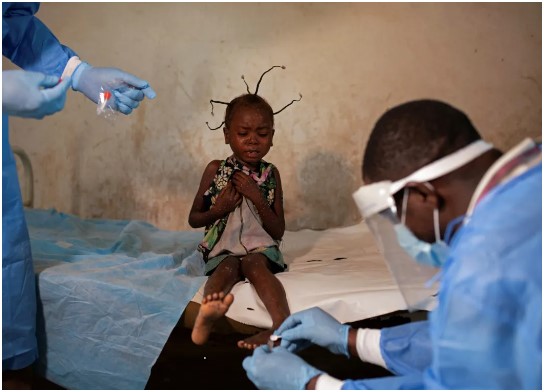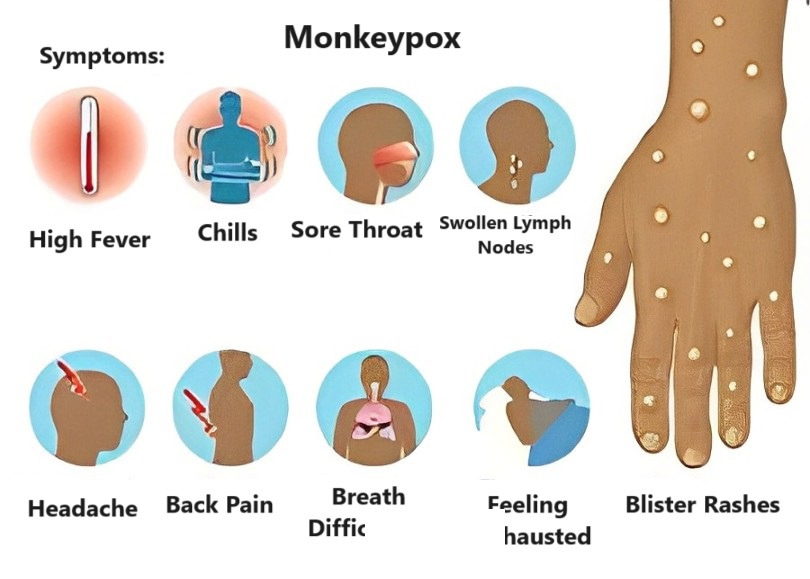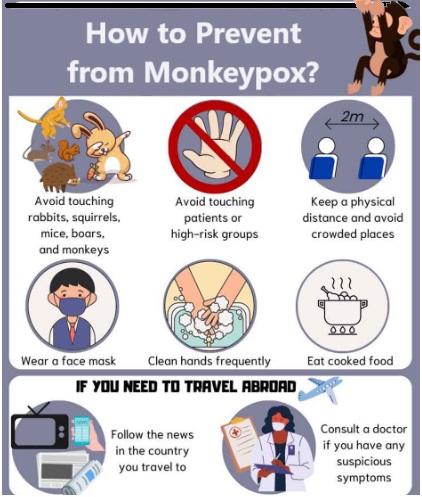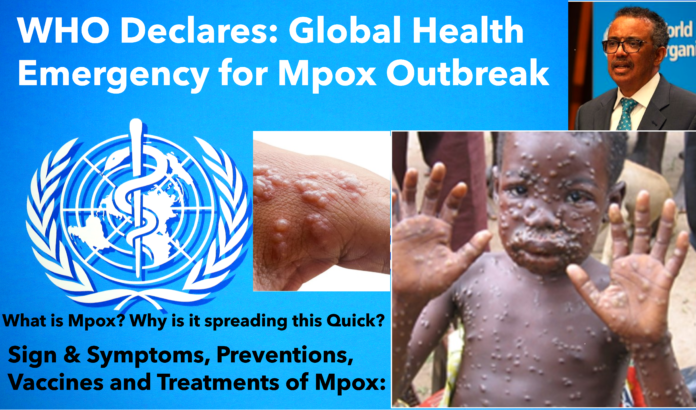Hello there! Have you ever heard about monkeypox? Lately, it has been trending in news for good reasons. This viral disease has existed for some time now but the recent outbreaks have captured everyone’s attention. Let’s get to know more about what monkey pox actually is, means of transmission, prevention measures and ways to be safe from it.
What exactly is MonkeyPox (mpox)?
Monkeypox is a viral infection under the same family as smallpox. However, do not panic because it is usually not as serious as its dreaded counterpart. The virus was first identified in a monkey colony in 1958 (hence its name) but is also capable of infecting people.

A Brief History Lesson
While monkeypox has been known to science for decades, it was only recently that it became a hot topic. The very first case recorded among people was in 1970 at Democratic Republic of Congo. Since then, sporadic outbreaks mainly occurred in some countries of central and western Africa.

How does Monkeypox Spread?
Now let’s talk about how this virus travels. Mpox is not as contagious as other viruses such as COVID19, but it still can spread within certain limits:
This virulent disease of monkeypox (Mpox) does not possess the same ability to spread rapidly like covid-19 and dengue fever, however its rate of transmission might surprise anyone who thinks otherwise.

- Transmission from animals to humans: The primary route of monkeypox infection for humans. This occurs when biting, scratching or coming into contact with bodily fluids emitted by infested animals.
- Transmission from humans to humans: After someone gets it, they can transmit through:
- Intimate physical touch (including sexual intercourse)
- Respiratory droplets during prolonged face-to-face interactions.
- Contact with contaminated items such as bed clothes or garments.
Signs and Symptoms of MPox:
Generally, mpox symptoms manifest at 6-13 days post exposure; however, sometimes it may take as long as 21 days. Some potential signs include:
- High Fever
- Feeling Extreme Cold
- Sore Throat
- Enlargement of lymph nodes
- Headache
- Back Pain
- Breath Difficulties
- Feeling Exahausted
- Rashes with Blisters

And finally, A characteristic rash that typically starts on the face before spreading to other areas in the body. These rashes develop into blister-like bumps filled with fluid which later crust over and fall off.
Diagnosis and Treatment of Monkeypox:
When you suspect a monkeypox infection, consulting a healthcare service provider is imperative. Also they can conduct different tests to find out if it’s mpox or not through PCR and blood tests.
In terms of treatment, there is no specific remedy for monkeypox infections. Most cases are mild, and they go away on their own in a few weeks’ time. Nevertheless, supportive care can assist in symptom management. Antiviral medicines may be administered in extreme situations.
Prevention for Mpox:
As they say prevention is always better than cure! Here are some guidelines to help keep your risk low:
- Avoid close contact with individuals who have rashes indicative of monkeypox.
- Do not touch or share anything used by an individual who has monkeypox.
- Always keep the physical distance and avoid crowded places in infected areas.
- Keep washing your hands frequently with soap and water and wear facemask properly.
- If you live in an area where monkeypox virus is present, don’t interact with any animals which could carry the disease like, rabbit, mice, squarrels, boars and monkeys.
- Do not eat raw food. Also better to avoid street foods too.

Monkeypox Vaccination
Although there is no specific vaccination for monkeypox, the smallpox vaccine has been shown to be effective in preventing cases of monkeypox. In certain countries, this vaccine may be administered to healthcare workers and individuals who have come into contact with monkeypox.
Debunking Monkeypox Myths:
Let us debunk some of these myths surrounding this disease:
| Monkeypox Myths | Facts |
|
|
|
|
|
|
Global Response And Research
The scientific community has been working hard for better understanding of the problem posed by monkeys at the same time developing more effective cures.
Newest developments aimed at improved treatment options for those infected include understanding what exactly causes infections, developing new vaccines through animal testing programs as well as other efforts aimed at controlling outbreaks such as continual monitoring of risk levels by organisms like the World Health Organization (WHO) or the Centers for Disease Control (CDC).
Monkeypox: What to do when you think you have it?
In case you suspect that you have monkeypox, do not panic. Here are some steps to follow:
- Isolate yourself from other people.
- Call your doctor or local public health department.
- Take their instructions on testing and care.
- Collaborate with contact tracing efforts if you test positive.
Always remember that the majority of monkey pox cases are mild and self-resolving. If everybody takes the necessary precautions it will help towards stopping its transmission.
So, mpox might seem terrifying, however, knowledge is power. We can protect ourselves and others by knowing how it is spread and what signs to watch out for. Be informed, be safe, and do not hesitate calling healthcare professionals whenever you have worries.

